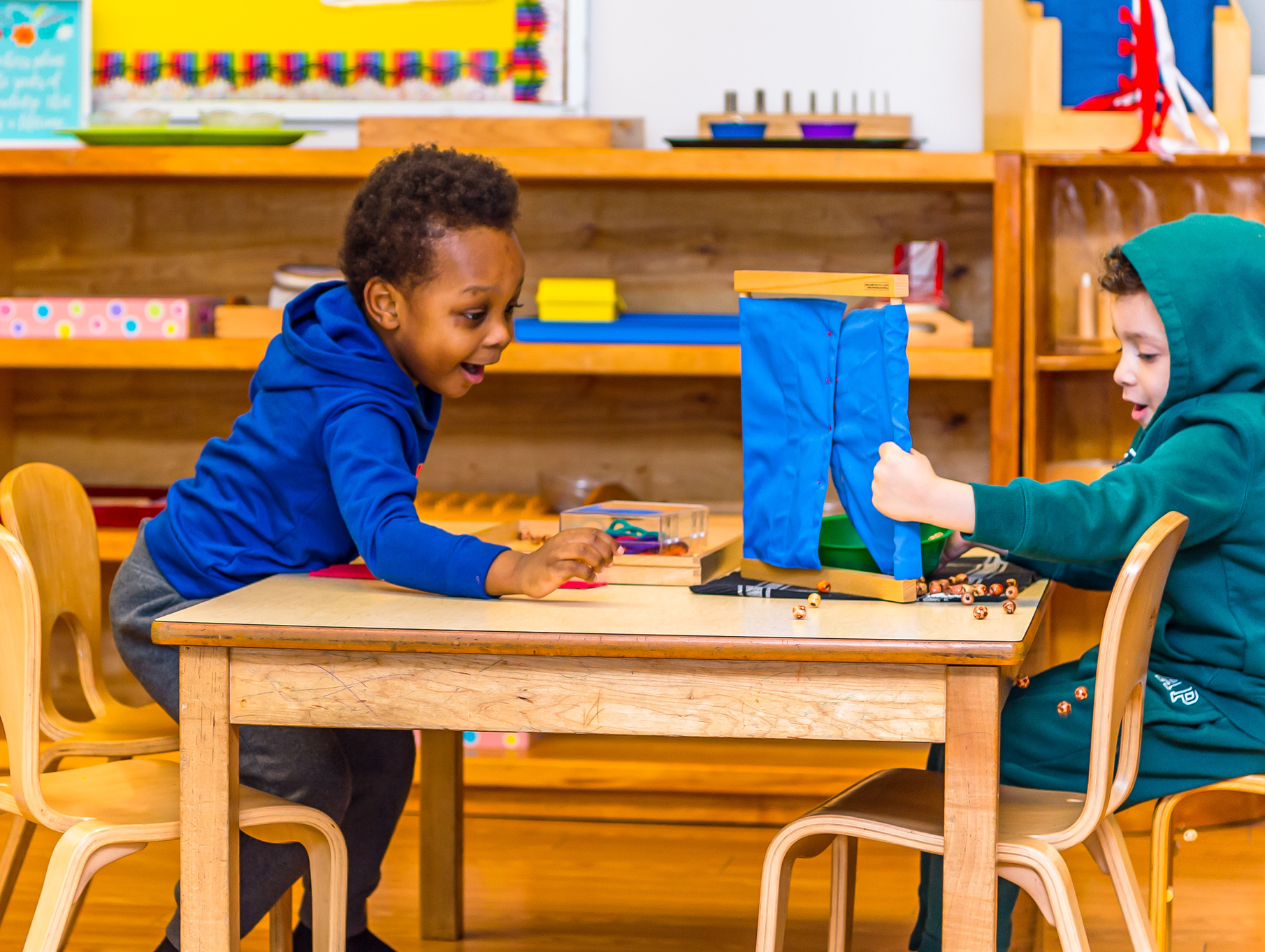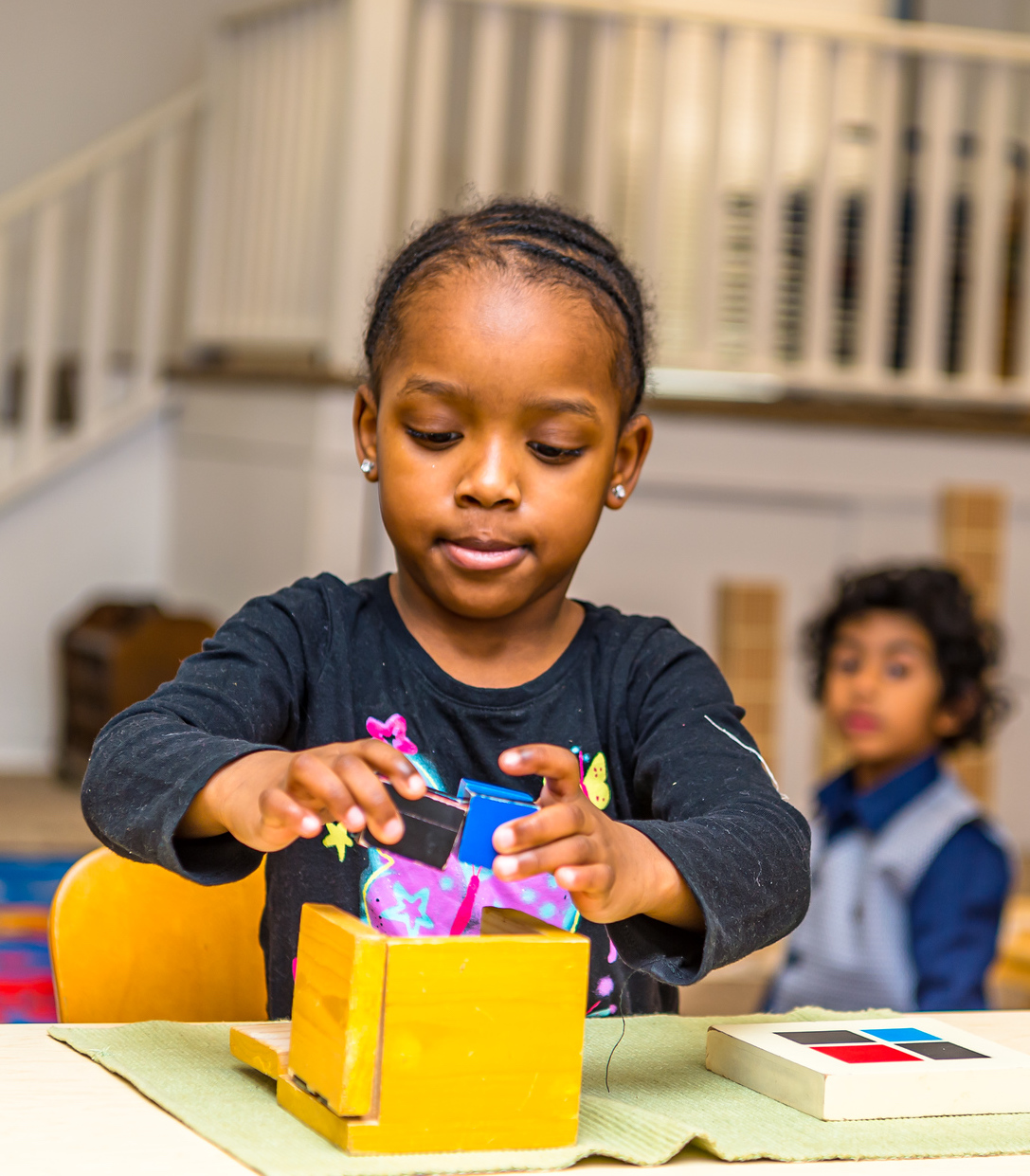
Giving Students the Best, So They Can Be Their Best
Inclusive Montessori School provides an enriched environment in which children are inspired to reach their highest potential. The Montessori philosophy fosters a strong sense of community and respect for self, others and the environment, building a strong academic foundation for a lifetime of learning.
Inclusive Montessori School programs are unique, reflecting the gifts and personalities of the staff. The level of our commitment to the children is unsurpassed. We are extremely aware of the importance of the work we do, and we recognize the opportunity to truly make a difference in the lives of children and their families. We develop the skills necessary for active and intelligent exploration and a life-long love of learning!
“Imagine a place where your child is always greeted warmly and made to feel welcome with a parent-communication experience that keeps you informed and confident that your child has fallen in love with learning.”
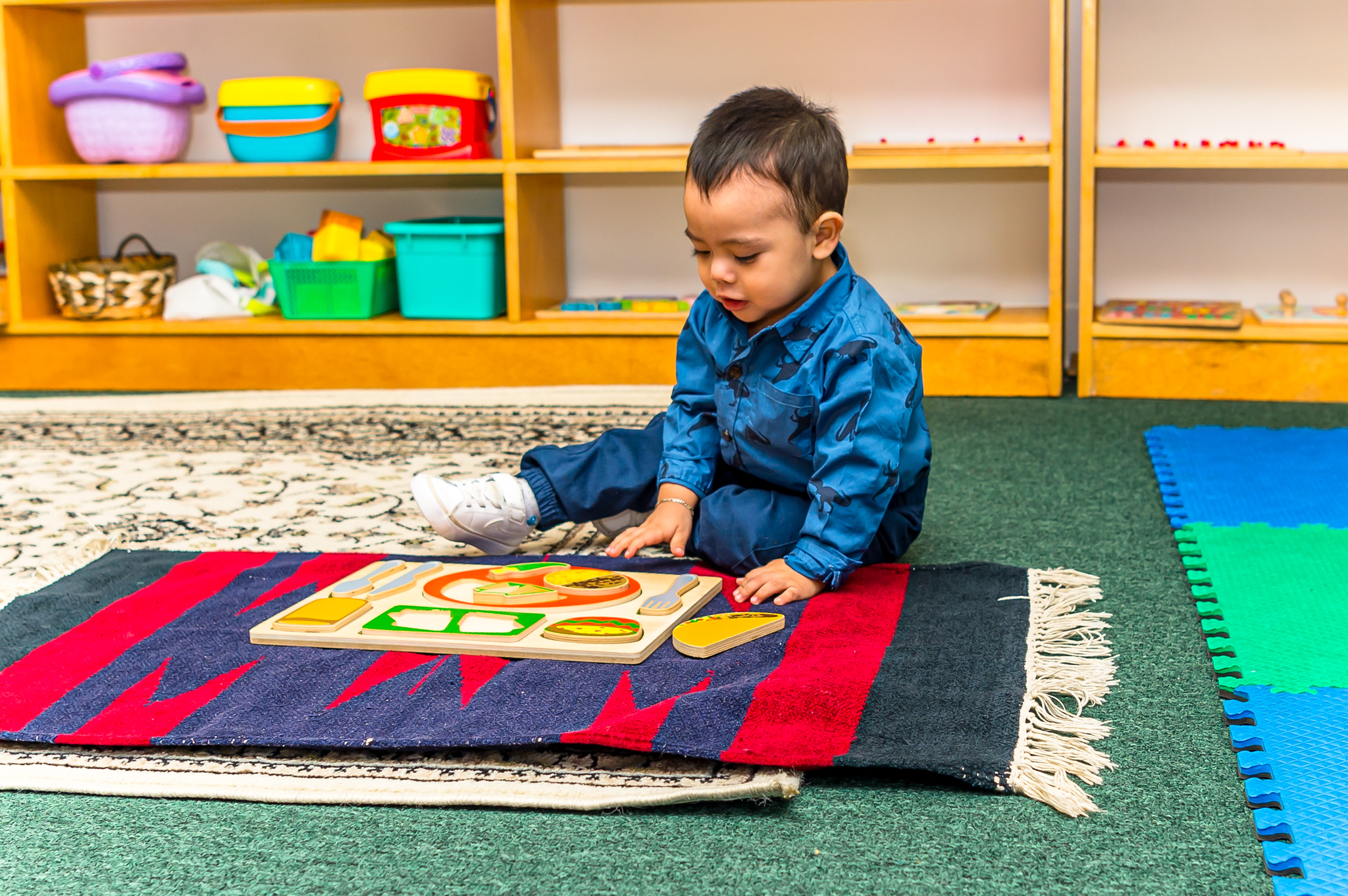
Our Mission
Our mission at Inclusive Montessori is to implement the philosophy, practice and curriculum of Dr. Maria Montessori. We provide individualized Montessori instruction that will enable all students to reach their highest level of academic success. We respect the right and need of each individual child to stimulate the passion to embrace all of life with respect and love. We help children develop the skills necessary for active and intelligent exploration and a lifelong love of learning.
Our goals at Inclusive Montessori School include:
✅ Independence with responsibility – Children thrive as they develop pride in their abilities, learn to work independently and take on the responsibility of helping to care for their work and the school environment.
✅ Concentration – We help children expand their attention span through providing engaging activities, preparing them t participate in school.
✅ Coordination – We provide engaging, fun exercises that strengthen your child’s hand for writing and train your child’s eyes for reading.
✅ Order – Our environment is based on order. Order leads to logical thinking which paves the way for your child’s future understanding of math concepts and helps children develop strong problem-solving and decision-making skills.
✅ Academic Growth – We offer many opportunities for your child to learn to read, write and understand basic math concepts.
✅ Emotional maturation – We support your child’s development of a positive self-image, strong social and communication skills and desire to learn.
✅ Self-Control – We provide children with tools for self regulation and teach children to take responsibility for their actions.
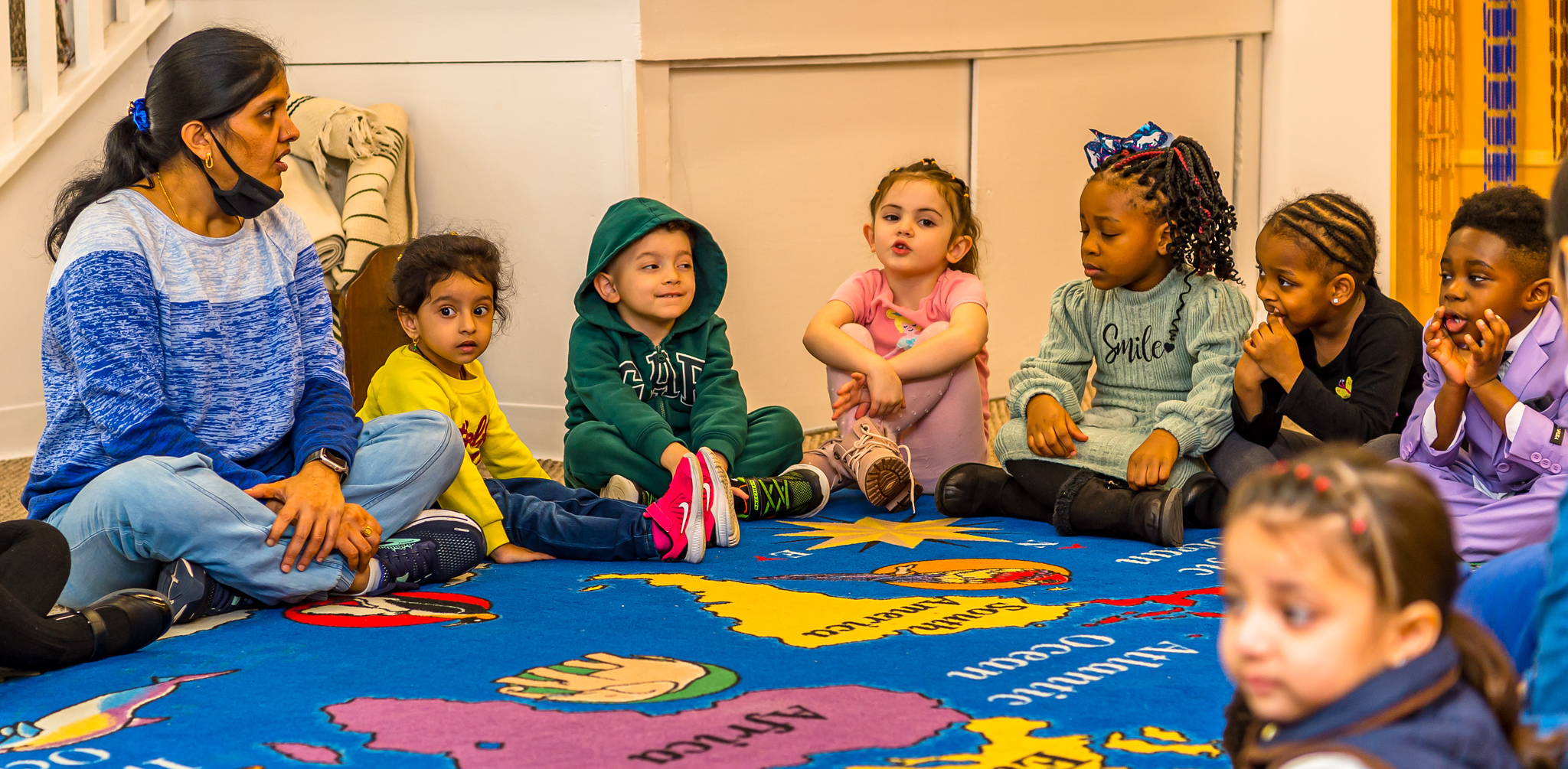
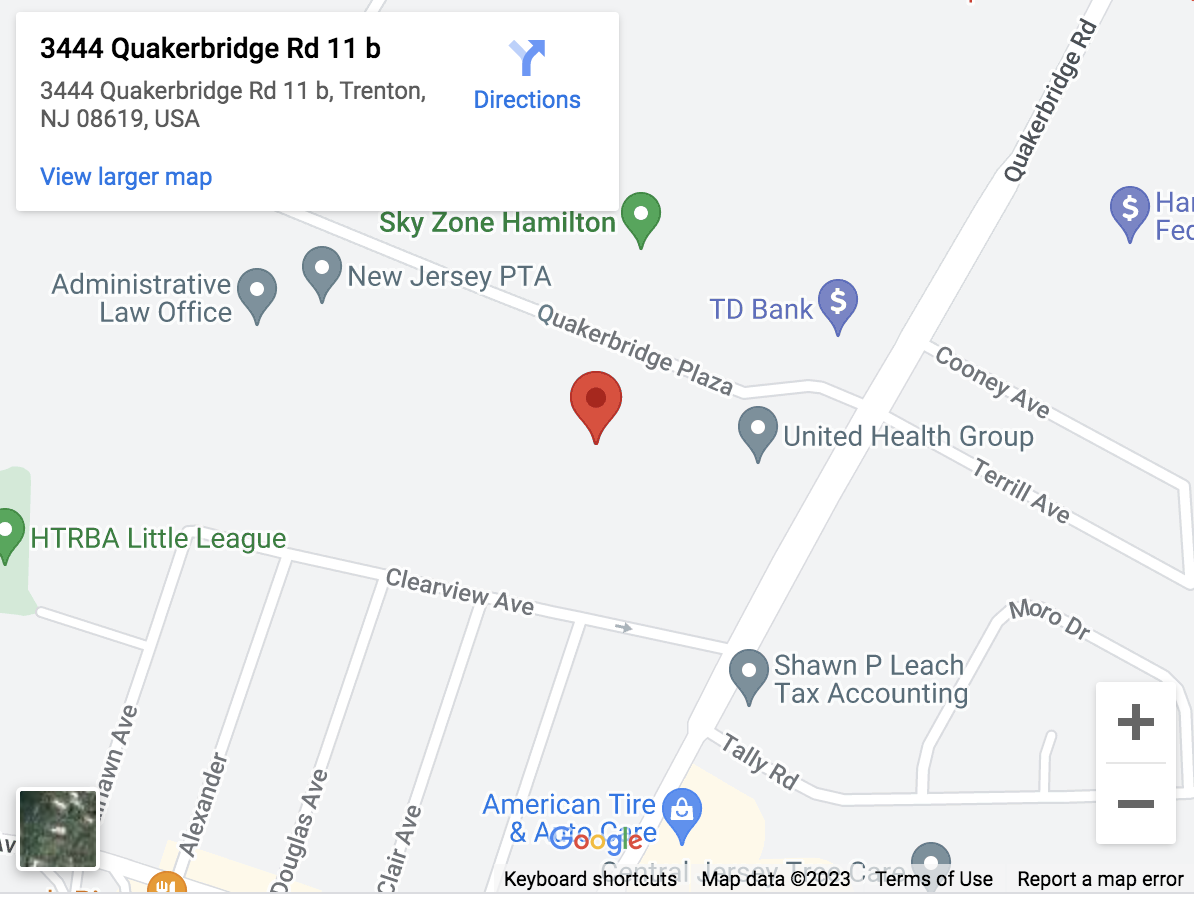
A Little About Our Programs
Infant & Toddler Program Ages 6 weeks – 2.5 years old
Our Montessori based infant & toddler curriculum supports the physical, cognitive, social and emotional development of each child. Toddlers strengthen speech and language development and both fine and gross motor skills as they explore self, family and the world in which they live. The toddler program prepares the toddler class children for preschool work by exposing them to each area of our Montessori curriculum. The toddlers learn concentration, coordination, language skills, responsibility and respect, all of which prepare them well for a successful transition into preschool at Inclusive Montessori School.
A typical day in a toddler classroom is carefully structured to balance learning, play, and rest to support the developmental needs of young children. Here’s a sample schedule that may be followed in a toddler classroom:
Morning Arrival (7:30 am – 8:30 am):
Parents drop off their children, who are greeted by teachers with warm welcomes and smiles.
Children engage in free play with toys, puzzles, and books while other children arrive.
Breakfast (8:30 am – 9:00 am):
Children gather for breakfast, where they practice social skills like sitting together, using utensils, and conversing with peers and teachers.
Circle Time (9:00 am – 9:30 am):
The class gathers for circle time, where they sing songs, read stories, and engage in group activities that introduce concepts like colors, shapes, and numbers.
Structured Learning Activities (9:30 am – 10:30 am):
Teachers lead small-group activities or individualized learning tasks based on age-appropriate themes and goals.
Activities may include art projects, sensory play, and simple science experiments.
Outdoor Play (10:30 am – 11:15 am):
Children go outside to play on playground equipment, run around, and engage in gross motor activities to develop physical skills.
Teachers supervise and facilitate games that encourage cooperation and imaginative play.
Snack Time (11:15 am – 11:45 am):
Children gather for a nutritious snack, practicing self-help skills like pouring drinks and serving themselves.
Teachers use this time to encourage conversation and teach about healthy eating habits.
Music and Movement (11:45 am – 12:15 pm):
Children participate in music and movement activities such as dancing, singing, and playing musical instruments.
This time promotes coordination, rhythm, and self-expression.
Lunch (12:15 pm – 1:00 pm):
Children eat lunch together, fostering social skills and independence as they feed themselves and engage in mealtime conversation.
Nap/Rest Time (1:00 pm – 3:00 pm):
Children have a quiet period for nap or rest time. Soft music or story recordings may be played to help children relax.
Teachers use this time to tidy up the classroom and prepare for the afternoon activities.
Afternoon Free Play (3:00 pm – 4:00 pm):
Children engage in unstructured play with various toys and materials, allowing them to explore and express themselves creatively.
Snack Time (4:00 pm – 4:30 pm):
Another snack time provides children with energy for the remainder of the day’s activities.
Story Time or Group Activity (4:30 pm – 5:00 pm):
Children gather for a final group activity, such as a story read-aloud or a game that reinforces learning concepts.
Departure (5:00 pm – 6:00 pm):
Parents arrive to pick up their children, and teachers provide feedback on their child’s day and any notable achievements or concerns.
Throughout the day, teachers closely observe and interact with children, providing support, guidance, and encouragement as they explore, learn, and grow. The environment is safe, nurturing, and stimulating, fostering the holistic development of each child in the toddler classroom.
Primary Program Ages 2.5 – 4 years old
Recognizing that this is an age of critical social development, we create an environment in which children are given the opportunity to develop as individuals within a social community. Our Primary Program cultivates basic motor coordination and language development. Our curriculum integrates key academic skills including math, science, geography, practical life, visual arts and sensorial learning as we lay the foundation for our children’s next steps in their education.
In an inclusive Montessori pre-K, the schedule is designed to accommodate the diverse needs and developmental stages of the children while adhering to Montessori principles of self-directed learning and individualized instruction. Here’s a typical day in such a classroom:
Morning Arrival (8:00 am – 8:30 am):
Children arrive at school and engage in a brief period of free play while teachers greet them and facilitate smooth transitions into the classroom.
Morning Meeting (8:30 am – 9:00 am):
The day starts with a brief morning meeting where children gather together for a group discussion, sharing thoughts, ideas, and plans for the day.
This time may also include a short mindfulness or meditation activity to set a calm and focused tone for the day.
Montessori Work Cycle (9:00 am – 11:30 am):
The bulk of the morning is dedicated to the Montessori work cycle, during which children have the freedom to choose activities from various learning areas in the classroom.
Children engage in self-directed exploration of materials such as practical life activities, sensorial materials, math manipulatives, language materials, and cultural studies materials.
Teachers circulate throughout the classroom, offering individualized lessons, guidance, and support as needed, and observing children’s progress and interests.
Outdoor Exploration (11:30 am – 12:00 pm):
Weather permitting, children go outside to explore and play in a natural outdoor environment, fostering gross motor skills, sensory experiences, and appreciation for nature.
Teachers may facilitate group games or provide open-ended materials for imaginative play.
Lunchtime (12:00 pm – 12:30 pm):
Children gather for lunch, practicing grace and courtesy as they serve themselves and interact with peers during mealtime.
Teachers use this time to model healthy eating habits and engage in conversation with children.
Quiet Time/Rest Period (12:30 pm – 1:30 pm):
After lunch, children have a quiet period for rest or relaxation. Soft music or story recordings may be played to promote a calm atmosphere.
Children who do not nap may engage in quiet activities such as reading, drawing, or puzzles.
Afternoon Work Cycle (1:30 pm – 3:00 pm):
The afternoon continues with another Montessori work cycle, providing children with opportunities to further explore materials and follow their interests.
Teachers continue to offer guidance, lessons, and support as children engage in independent and collaborative learning activities.
Snack Time (3:00 pm – 3:30 pm):
Children gather for a healthy snack, fostering socialization and providing a boost of energy for the remainder of the day.
Group Activities/Enrichment (3:30 pm – 4:00 pm):
The afternoon may include group activities or enrichment experiences such as art projects, music and movement, or science experiments.
These activities allow children to collaborate, express creativity, and explore new concepts in a social setting.
Closing Circle (4:00 pm – 4:30 pm):
The day concludes with a closing circle where children come together to reflect on their learning experiences, share accomplishments, and express gratitude.
Teachers may read a story, sing songs, or lead a group discussion focused on themes related to character development, empathy, or community.
Dismissal (4:30 pm – 5:00 pm):
Parents arrive to pick up their children, and teachers provide feedback on their child’s day, highlighting achievements and discussing any areas for growth or support.
Teachers may also share information about upcoming events or learning opportunities.
Throughout the day, the classroom environment is carefully prepared to foster independence, exploration, and a sense of belonging for all children, regardless of their abilities or backgrounds. Teachers serve as guides and facilitators, nurturing each child’s unique potential and fostering a love of learning that extends beyond the classroom.
Kindergarten Ages 4-6 years
Through the Montessori Method, our children begin as novices, grow to be apprentices and, in their Kindergarten year, they become leaders.
At Inclusive Montessori School your child continues to set the pace for his or her own education and developmental growth. Our Kindergarten curriculum is carefully structured and integrated to demonstrate the connections among different areas of learning. Your child’s Kindergarten year highlights critical thinking, composition, and research-based projects.
Children who attend Inclusive Montessori School will have a distinct edge over those who attend traditional Kindergarten in terms of academics and social development. Children graduate from our school with a strong sense of self-confidence, enthusiasm for learning and close bonds with their teachers and classmates. We want much more than competency in the basic skills; we want them to truly enjoy school and feel good about themselves as students.
In an inclusive Montessori Kindergarten, the schedule is designed to accommodate the diverse needs and developmental stages of the children while adhering to Montessori principles of self-directed learning and individualized instruction. Here’s a typical day in such a classroom:
Morning Arrival (8:00 am – 8:30 am):
Children arrive at school and engage in a brief period of free play while teachers greet them and facilitate smooth transitions into the classroom.
Morning Meeting (8:30 am – 9:00 am):
The day starts with a brief morning meeting where children gather together for a group discussion, sharing thoughts, ideas, and plans for the day.
This time may also include a short mindfulness or meditation activity to set a calm and focused tone for the day.
Montessori Work Cycle (9:00 am – 11:30 am):
The bulk of the morning is dedicated to the Montessori work cycle, during which children have the freedom to choose activities from various learning areas in the classroom.
Children engage in self-directed exploration of materials such as practical life activities, sensorial materials, math manipulatives, language materials, and cultural studies materials.
Teachers circulate throughout the classroom, offering individualized lessons, guidance, and support as needed, and observing children’s progress and interests.
Outdoor Exploration (11:30 am – 12:00 pm):
Weather permitting, children go outside to explore and play in a natural outdoor environment, fostering gross motor skills, sensory experiences, and appreciation for nature.
Teachers may facilitate group games or provide open-ended materials for imaginative play.
Lunchtime (12:00 pm – 12:30 pm):
Children gather for lunch, practicing grace and courtesy as they serve themselves and interact with peers during mealtime.
Teachers use this time to model healthy eating habits and engage in conversation with children.
Quiet Time/Rest Period (12:30 pm – 1:30 pm):
After lunch, children have a quiet period for rest or relaxation. Soft music or story recordings may be played to promote a calm atmosphere.
Children who do not nap may engage in quiet activities such as reading, drawing, or puzzles.
Afternoon Work Cycle (1:30 pm – 3:00 pm):
The afternoon continues with another Montessori work cycle, providing children with opportunities to further explore materials and follow their interests.
Teachers continue to offer guidance, lessons, and support as children engage in independent and collaborative learning activities.
Snack Time (3:00 pm – 3:30 pm):
Children gather for a healthy snack, fostering socialization and providing a boost of energy for the remainder of the day.
Group Activities/Enrichment (3:30 pm – 4:00 pm):
The afternoon may include group activities or enrichment experiences such as art projects, music and movement, or science experiments.
These activities allow children to collaborate, express creativity, and explore new concepts in a social setting.
Closing Circle (4:00 pm – 4:30 pm):
The day concludes with a closing circle where children come together to reflect on their learning experiences, share accomplishments, and express gratitude.
Teachers may read a story, sing songs, or lead a group discussion focused on themes related to character development, empathy, or community.
Dismissal (4:30 pm – 5:00 pm):
Parents arrive to pick up their children, and teachers provide feedback on their child’s day, highlighting achievements and discussing any areas for growth or support.
Teachers may also share information about upcoming events or learning opportunities.
Throughout the day, the classroom environment is carefully prepared to foster independence, exploration, and a sense of belonging for all children, regardless of their abilities or backgrounds. Teachers serve as guides and facilitators, nurturing each child’s unique potential and fostering a love of learning that extends beyond the classroom.
Hear it from our parents!
““When we first moved in the area we were in search of a daycare for our two daughters. We had tried one in the area, but was not too pleased with the results. And so, with great reluctance we had decided to enroll them in Inclusive Montessori School. However, after meeting with the director we felt more comfortable with the environment we were putting the girls in. As days becomes months, the progress we saw from our oldest daughter was like day and night. She’s learning so much, I can honestly say those teachers are amazing. My biggest shocker, I came from work one night to find my 3 years old daughter with a little booklet they had made in school of the continents and she was showing and naming them all. That’s just one of the many examples of things I’ve been impressed with.”

Parent
“The staff is very professional and friendly, which I feel is important for the young children. Prior to sending Gabriel to Inclusive Montessori School, I have Mrs. Haroon for several years. Since starting the school, she has been very involved in choosing the best staff, especially the infant room, and making sure the school is clean and all procedures are followed. I would not hesitate to trust her and the staff to watch my children.”

Parent
Come see Our School for yourself! Fill out the form above to book a school tour or learn more!

